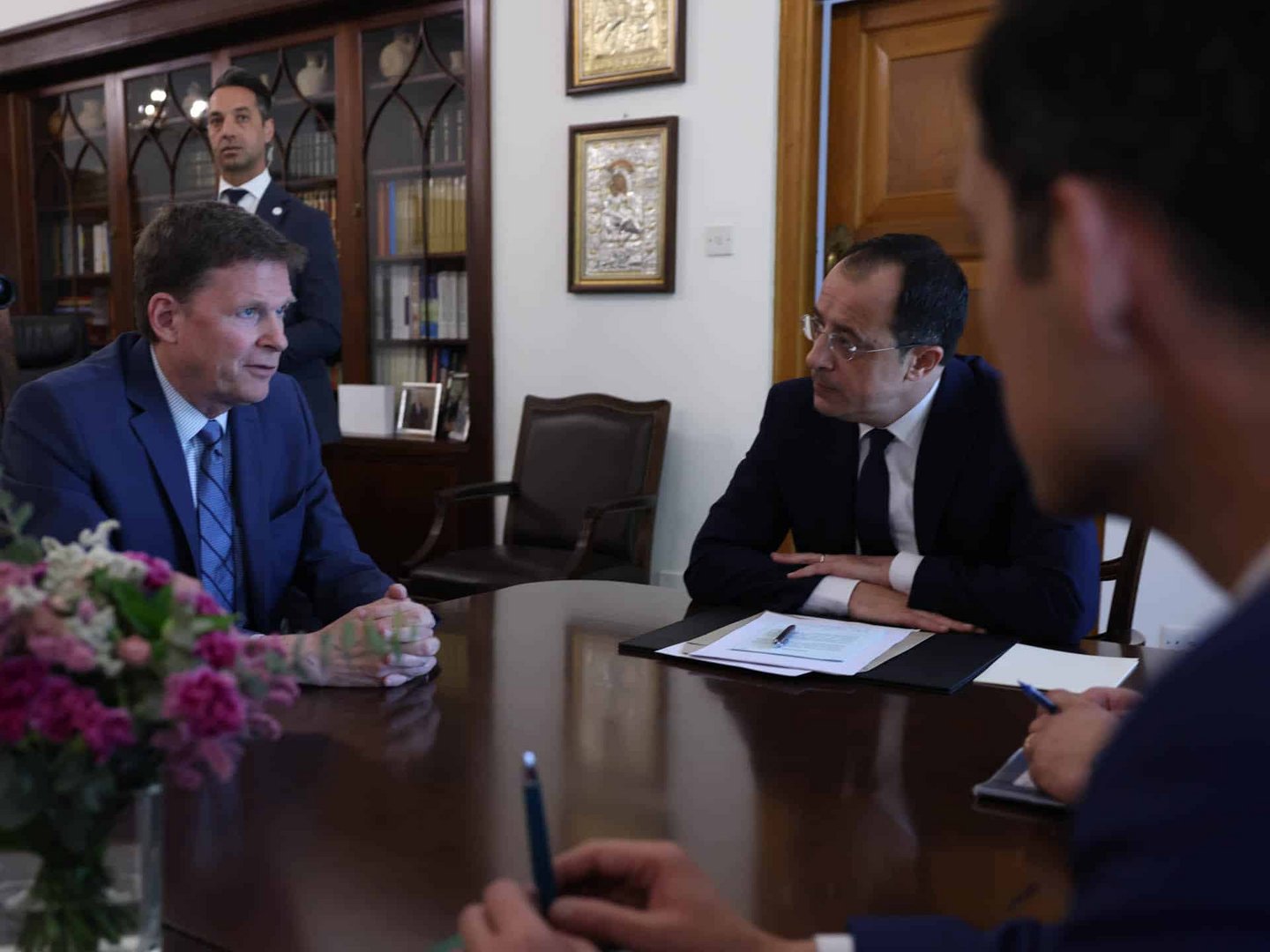The UN secretary-general’s special representative and head of the UN peacekeeping force in Cyprus (Unficyp), Colin Stewart has expressed optimism regarding the recent developments in the Cyprus problem.
Speaking at the Economist’s 19th Annual Cyprus Summit on Wednesday, he said he sees the common ground achieved in the Pyla village issue as “a hopeful sign that other challenging matters can be approached with the same constructive attitude concerning Cyprus”.
Construction works in Pyla are currently on hold on both sides.
Unficyp spokesman Aleem Siddique on Tuesday told the Cyprus Mail that the situation is under control.
When asked how serious the situation is regarding the suspension of the construction works, Stewart remained optimistic.
“I think we will manage. Both sides remain very committed to implementing the agreement we have reached,” he said, after the his speech at the summit.
“These difficulties are normal, it is always a challenge to implement agreements, but I’m confident that differences will be solved.”
However, he could not give a specific date as to when works will resume.
“I am always in consultation with both sides, continuously. Works will resume when everybody is ready to return,” he said.
“The temporary situation is useful to calm things down and address all challenges.”
In his speech during the summit, Stewart noted a growing consensus around the appointment of a UN envoy for Cyprus.
“The status quo in Cyprus is not static, and as long as the Cyprus problem remains unresolved, tensions will persist,” he said, adding that promoting trade would enhance integration between the island’s communities.
“There appears to be a consensus regarding the appointment of a UN envoy for Cyprus, someone who will work with the parties on a permanent basis for Cyprus,” he said.
“This is a hopeful sign because many of the challenges and tensions that we, the UN, face on a daily basis inside or outside the buffer zone are merely symptoms of the broader issue and cannot be truly resolved until the Cyprus problem is politically addressed.”
Responding to a comment about the increasing difficulty of resolving the Cyprus problem over time, Stewart acknowledged that it is indeed becoming more challenging.
Stewart also said that, despite years of discouragement, many local actors and individuals from both sides continue to show resilience and seek a solution.
“To solve the Cyprus issue, we must prepare the ground, and I cannot think of a more effective way to do this than by breaking down the economic barriers between the two sides of the island and integrating the two economies.
“Removing barriers and expanding trade will enhance integration between the island’s two sides, strengthen interdependence between the communities, and create a much better environment for resolving the Cyprus problem.”
Stewart expanded on his thought, adding that an integrated economy will help address the structural constraints that characterise small islands by reducing external vulnerabilities, attracting more foreign direct investment and tourism, and creating more and better job opportunities.
“Another reason why trade is so important is that it will increase interactions between people,” Stewart continued.
He said this was crucial because there is still enormous mistrust, not so much among individuals but among groups, especially as represented by their political leaders.
“There is still a mindset among the political leadership on both sides that they should not be seen as having compromised but as having led their side to victory. But mutually acceptable agreements are only achieved through compromise,” he added, underlining that gestures that enhance integration between the two communities, particularly those with significant economic impacts, bring Cypriots closer together and should not demand reciprocity.
“The benefits they offer are much more valuable as they build trust in a common future and thus pave the way for a mutually acceptable settlement,” he said.
In conclusion, Stewart said that confidence building measures are important to address the lack of trust.
“The twelve technical committees established by the leaders to improve the living conditions of all Cypriots have provided a path for positive steps and daily achievements, from cooperation in health to the protection of cultural heritage, from managing cooperation on criminal matters to promoting gender equality.
“With the financial support of the European Union, the work done by these committees lays the groundwork for future talks,” Stewart said.






Click here to change your cookie preferences